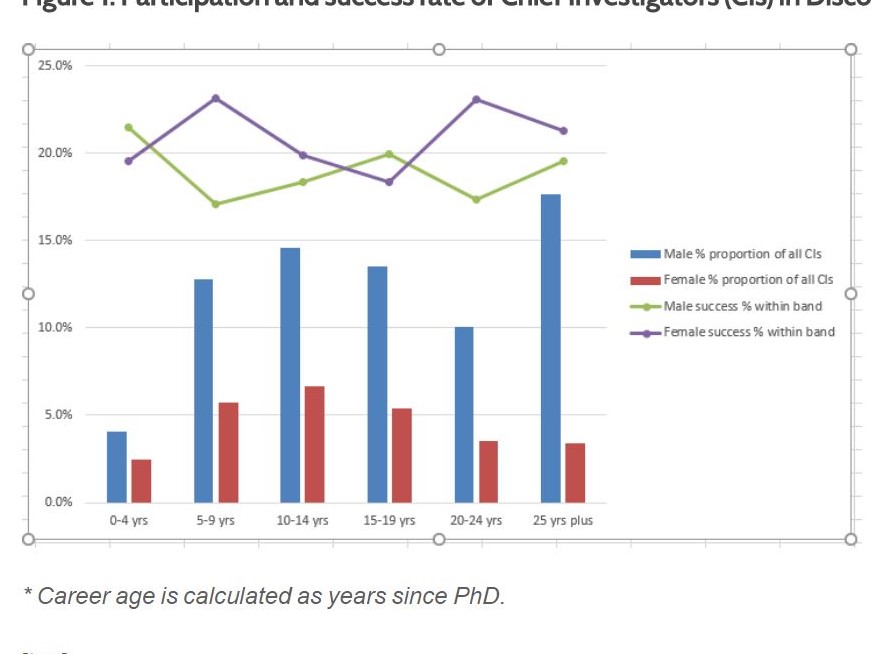Send us a link
The Pay Gap, Visualized and Analyzed
Even when the field of academic study is removed from the equation, women’s earnings still trail those of men by 11 percent. The reason? Family. Married women with children are paid less than those who don’t have similarly structured families. Meanwhile, men earn the same amount, regardless of their marital or parental status.

Yes, Being a Woman in Science Is Hard. That’s Why We’re Trying to Change It.
Universities Have Too Few Women at the Top. How Can They Redress the Balance?
Universities Have Too Few Women at the Top. How Can They Redress the Balance?
Across the UK, universities are falling behind government targets to increase female representation on their boards by 2020. What steps can they take?

Study Finds Female College Graduates Newly on the Job Market Are Punished for Having Good Grades
The Time is Now for More Women in Science
According to a new survey, most Americans agree women are critical to scientific discovery.

The Identity of the Lone Woman Scientist in This 1971 Photo Was a Mystery. Then Twitter Cracked the Case
What Does a Scientist Look Like? Children Are Drawing Women More Than Ever Before
Celebrating the Women of EPFL's IC School: Miranda Krekovic
Rather than simply complaining about the lack of women, the researchers at EPFL decided to walk the talk by launching GirlsCoding.
Stem Is Losing Male LGBT Undergrads
But female LGBQ students are more likely than their heterosexual peers to stay in STEM, a survey of college seniors across the United States reveals.

Why Do Girls Lose Interest in STEM? New Research Has Some Answers - And What We Can Do About It
Why Do Girls Lose Interest in STEM? New Research Has Some Answers - And What We Can Do About It
Despite the high priority that is placed on STEM in schools, efforts to expand female interest and employment in STEM are not working as well as intended. Ways to better support young women include interactive projects, and mentoring from parents and community members. "We need to teach girls that it is all right to sit with the discomfort of not knowing the right answer right away."

Bridging the Gender Gap: Why Do so Few Girls Study Stem Subjects?
To attract more girls to study Stem subjects at university, we need to tackle the stereotypes they are exposed to early on.

Persistent Underrepresentation of Women's Science in High Profile Journals
Why Do Female Academics Publish Less Than Their Male Peers?
Editors and peer reviewers impose tougher standards on women. This is evident from the fact that female-authored economics papers take around six months more to go through the review process than male-authored papers. As a result, female academics come to experience peer review as a much tougher process and those who progress on the career ladder adjust their expectations about what is required. Female researchers publish less than their male peers do but what they publish is much more readable and better written.

Perish Not Publish? New Study Quantifies the Lack of Female Authors in Scientific Journals
How to Tackle the Childcare-Conference Conundrum
Four concrete suggestions - for Childcare, Accommodate families, Resources, Establish social networks - are directed toward research societies and conference organizers who are willing to take a leadership role in creating solutions, either incrementally or on a large scale.
Persistent Underrepresentation of Women's Science in High Profile Journals
Study found that 1) Women authors have been persistently underrepresented in high-profile journals, and 2) The percent of female first and last authors is negatively associated with a journal's impact factor.
Guidance to Facilitate the Implementation of Targets to Promote Gender Equality in Research and Innovation
Scientist Takes Her Sexual Harassment Findings to Congress
Kathryn Clancy has spent years studying how sexual harassment pervades science. This week, she’s taking those findings to Congress.











